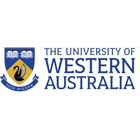Master of Pharmacy
Master of Pharmacy
This program provides a direct pathway to a professional postgraduate qualification in Pharmacy for registration as a pharmacist in this country. The Australian government predicts strong employment growth for pharmacists over the coming years, partly due to the expanding role of pharmacists in healthcare delivery. This master’s degree course provides…
Categories
COURSE DESCRIPTION
This program provides a direct pathway to a professional postgraduate qualification in Pharmacy for registration as a pharmacist in this country. The Australian government predicts strong employment growth for pharmacists over the coming years, partly due to the expanding role of pharmacists in healthcare delivery.
This master’s degree course provides advanced study in the areas of pharmacy practice, clinical pharmacy, pharmaceutics, medicinal chemistry, pharmacotherapy and health systems, and includes practical training in community and hospital pharmacy.
Reasons to study Pharmacy
Every student participates in a work based training (e.g. placements in community and hospital pharmacies), providing an insight into the various career pathways and an opportunity to grow your professional connections with pharmacists and healthcare practitioners.
Eligible students can participate in alternative placements in rural Australia and International locations.
Small yearly intake means students benefit from a lot of one-to-one interaction with academic and professional staff, particularly in the area of Pharmacy Practice, which greatly enhances students’ professional interpersonal skills.
Through close association with other health professions at UWA, pharmacy students engage in genuine inter-professional learning during the course
Taught by world renowned academics who are leaders in their field.
Graduate outcomes
On completion of this course, students will be able to:
Understand the foundations of pharmacy practice and pharmaceutical sciences
Demonstrate knowledge in primary care and clinical therapeutic areas, and patient assessment and consultation
Provide socially accountable person-centred care to address the needs of individuals and the wider community
Apply principles of pharmacy business management to develop a pharmacy business plan
Retrieve, critically evaluate and apply evidence in professional practice
Career Pathways
What career paths are there for pharmacists?
Community Pharmacy
The most visible face of pharmacy is the community pharmacy. Community pharmacists are often the first point of contact for members of the community who need health advice or someone to talk to about their health concerns. This role as a primary health care provider carries a lot of responsibility as decisions need to be made about the best plan of action for your patient and whether referral to another health care professional is warranted. This responsibility requires not only sound professional judgement but also excellent communication skills. A pharmacist needs to be a good, empathetic listener and be able to communicate complex scenarios in a way that helps members of the general public understand their health issues and the various treatment options that may be available to them.
Hospital Pharmacy
A small army of pharmacists are an integral part of the health care team in hospitals, working together with doctors, nurses, and specialists to ensure optimum care for every patient. Often pharmacists become involved in clinical trials conducted in the hospital to evaluate the worth of a new therapeutic agent, or in hospital based research to look for new and better ways to manage patients and their medications. Hospital pharmacists may also specialise in a particular area of health care (for example oncology or infectious diseases) and become expert in the pharmaceutical management of what are often very difficult and complex health conditions.
Consultant Pharmacy
These pharmacists work in general practice alongside general practitioners to review a patient’s medications to optimise their therapy – this may occur in the home or at aged care and special needs facilities.
REQUIREMENTS
To be eligible to enrol in the Master of Pharmacy Program, you will need to have successfully completed studies in Chemistry and Mathematics at either Year 12 or tertiary level, and tertiary level Microbiology and Pharmacology units.
Graduate entry to Pharmacy
Bachelor degree holders or students who are in progress of their first bachelor’s degree may be eligible to apply for graduate entry into the Master of Pharmacy (MPharm).
English language requirements:
TOEFL (paper-based): 570 with a Test of Written English (TWE) of no less than 4.5
IBT TOEFL (Internet-based test score): 82 with 22 for writing, 20 for speaking, 20 for listening, and 18 for reading
IELTS (Academic): overall score of at least 7.0 and no band less than 7.0
Cambridge Certificate of Proficiency in English: C pass
Cambridge Certificate in Advanced English: B grade
Pearson Test of English (PTE) (Academic): Overall score of 64 with a minimum score of 64 in the Reading and Writing sections, 59 in the Speaking section and 54 in the Listening section
EDUCATIONAL INSTITUTION
The University of Western Australia (UWA) is a proud member of the Group of Eight and is the only university in Western Australia to be ranked in the world top 100 universities (QS World University Rankings 2023).UWA’s main campus is located in Perth, Western Australia and is home to more than 23,000 students. Perth is Australia’s fourth-largest city with over two million people from a variety of cultures worldwide, a strong economy and vibrant lifestyle. Perth is one of the country’s most affordable cities, the closest major Australian city to Asia, and in the same time zone as most of Asia.




